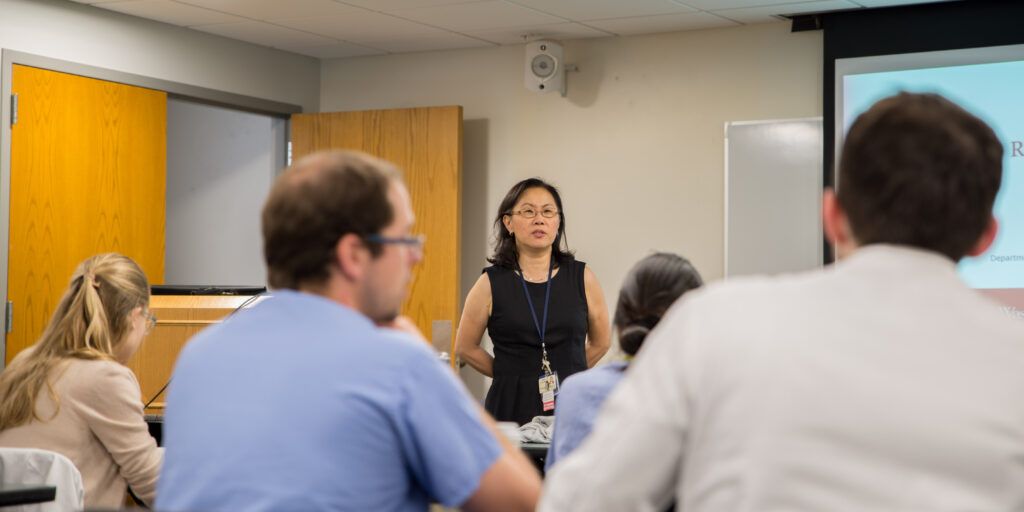On March 18, 2020, the Dean of Washington University School of Medicine notified all departments that they should defer all office visits and elective procedures as of March 23, due to concerns about COVID-19. “Elective” was defined as meaning that the patient’s encounter could be postponed at least eight weeks without substantial risk of harm to the patient and without compromising standards of care for known conditions.
Thus, on March 23, much of Otolaryngology in-person, hands-on clinical education evaporated.
What did we do in response? With the goals of preserving as much education as possible, serving the patients who continue to come into the hospitals for urgent/emergent issues, and protecting the residents from exposures to COVID-19 as much as possible, the entire residency program rotations were re-organized. Each hospital—Veteran Affairs, St. Louis Children’s Hospital, and Barnes-Jewish Hospital—had teams of residents who would alternate from week to week, to benefit from the clinical experience that remained, but also give them a week off in between to minimize exposures.
Thankfully, the ingenuity and collaboration of the collective Otolaryngology residency programs came through with the establishment of three academic consortia to produce lectures over Zoom that any resident in the country could view. These three consortia were housed at the University of Southern California (https://sites.usc.edu/ohnscovid/), the University Hospitals/Case Western Reserve University (www.uhhospitals.org/ENTEDConsortium), and the University of Kentucky (Entcovid.med.uky.edu). Our own faculty participated in some of those consortia, and generously provided additional clinical education Zoom opportunities, to provide a substitute for some of the lost clinical teaching that would have otherwise occurred in the clinic and in the operating room.
Our residents have responded beautifully to these challenging times. They are taking advantage of the consortia lectures, reading/studying on their own, writing papers, conducting research, and supporting each other well. We all look forward to when we can resume more normal clinical operations. We are saddened by the cancellation of the graduation activities on Ogura Day, but seek opportunities to celebrate the achievements and accomplishments of our chief residents. We are making plans for the upcoming academic year, including welcoming our new interns, with an eye toward how to best make-up for some of the lost clinical opportunities until the cancellation of elective procedures is lifted.
